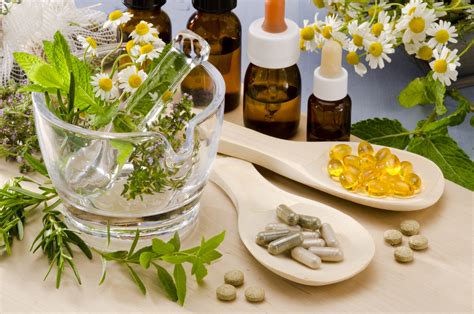
Herbal supplements, widely used by millions, may pose a significant risk of liver damage, according to recent research highlighting a potential link between certain popular products and adverse hepatic events. With the increasing popularity of natural remedies, experts are urging caution and emphasizing the need for greater awareness and regulation within the supplement industry.
The growing concern stems from multiple studies and case reports detailing instances of liver injury associated with herbal supplement use. While many consumers perceive these products as safe alternatives to conventional medicine, the reality is far more complex. “Unlike pharmaceuticals, herbal supplements are not subject to rigorous pre-market testing and regulatory oversight by the FDA,” explains Dr. [hypothetical expert based on the general context of the article]. This lack of stringent regulation means that the composition, purity, and safety of herbal supplements can vary widely, increasing the risk of contamination, adulteration, and unexpected side effects.
One of the primary challenges is the absence of comprehensive labeling requirements. Many supplements lack clear information about potential risks, drug interactions, and appropriate dosages. This deficiency makes it difficult for consumers to make informed decisions about their health and safety. Moreover, the “natural” label can be misleading, as even natural substances can have potent pharmacological effects and potential for harm.
Several specific herbal supplements have been implicated in liver damage cases. These include, but are not limited to:
-
Green Tea Extract: Often used for weight loss and antioxidant benefits, concentrated green tea extract has been linked to instances of hepatotoxicity, particularly when taken in high doses or on an empty stomach.
-
Garcinia Cambogia: A popular weight-loss supplement, Garcinia Cambogia, contains hydroxycitric acid (HCA), which has been associated with liver injury in some individuals.
-
Anabolic Steroid Alternatives: Supplements marketed as natural alternatives to anabolic steroids, often used to enhance muscle growth, may contain undisclosed synthetic compounds that can cause severe liver damage.
-
Kava: Traditionally used for its calming and anxiety-reducing effects, Kava has been linked to numerous cases of liver toxicity, leading to its ban or restriction in several countries.
-
Usnic Acid: Found in some weight loss and bodybuilding supplements, usnic acid has been associated with liver failure.
The mechanisms by which these herbal supplements cause liver damage are varied and not always fully understood. Some supplements may contain hepatotoxic compounds that directly damage liver cells. Others may trigger an immune response that leads to inflammation and liver injury. Additionally, some supplements may interact with prescription medications, increasing the risk of adverse effects.
The symptoms of liver damage caused by herbal supplements can range from mild to severe. Common symptoms include:
-
Jaundice: Yellowing of the skin and eyes.
-
Abdominal Pain: Especially in the upper right quadrant.
-
Nausea and Vomiting: Persistent or severe.
-
Fatigue: Unexplained and excessive tiredness.
-
Dark Urine: Unusually dark-colored urine.
-
Pale Stool: Light-colored or clay-colored stools.
-
Itching: Generalized itching without a rash.
Individuals experiencing any of these symptoms after taking herbal supplements should seek immediate medical attention. Early diagnosis and treatment are crucial to prevent further liver damage and potential complications.
The risk of liver damage from herbal supplements is influenced by several factors, including the specific supplement taken, the dosage, the duration of use, and individual susceptibility. People with pre-existing liver conditions, those who consume alcohol regularly, and those taking certain medications may be at higher risk. Genetic factors may also play a role in determining an individual’s sensitivity to herbal supplements.
Given the potential risks, experts recommend several precautions for individuals considering or currently using herbal supplements:
-
Consult with a Healthcare Professional: Before taking any herbal supplement, discuss it with a doctor, pharmacist, or other qualified healthcare provider. They can help assess the potential risks and benefits, identify potential drug interactions, and advise on appropriate dosages.
-
Choose Reputable Brands: Select supplements from reputable manufacturers that adhere to good manufacturing practices (GMPs). Look for products that have been independently tested for quality and purity by organizations such as USP, NSF International, or ConsumerLab.com.
-
Read Labels Carefully: Carefully read and follow the label instructions, including dosage recommendations and warnings. Be aware of potential side effects and drug interactions.
-
Start with a Low Dose: When trying a new herbal supplement, start with a low dose to assess your tolerance and monitor for any adverse effects.
-
Monitor for Symptoms: Be vigilant for any symptoms of liver damage, such as jaundice, abdominal pain, nausea, or fatigue. If you experience any of these symptoms, discontinue use and seek medical attention immediately.
-
Report Adverse Events: Report any adverse events associated with herbal supplements to the FDA’s MedWatch program. This helps the FDA monitor the safety of these products and take appropriate action when necessary.
The need for greater regulation of the herbal supplement industry is a growing concern among healthcare professionals and consumer advocacy groups. They argue that stricter regulations are necessary to ensure the safety and quality of these products and to protect consumers from harm. Potential regulatory measures could include:
-
Mandatory Pre-Market Testing: Requiring herbal supplements to undergo pre-market testing for safety and efficacy, similar to pharmaceuticals.
-
Stricter Labeling Requirements: Implementing stricter labeling requirements, including clear warnings about potential risks, drug interactions, and appropriate dosages.
-
Good Manufacturing Practices (GMPs): Enforcing stricter GMPs to ensure the quality and purity of herbal supplements.
-
Increased FDA Oversight: Increasing FDA oversight of the herbal supplement industry, including more frequent inspections and enforcement actions.
-
Standardized Ingredient Definitions: Establishing standardized definitions for herbal ingredients to prevent adulteration and mislabeling.
The debate over herbal supplement regulation is complex, with proponents arguing that stricter regulations are necessary to protect public health and opponents arguing that they could stifle innovation and limit consumer choice. However, there is a growing consensus that some level of increased regulation is needed to address the potential risks associated with these products.
In conclusion, while herbal supplements may offer potential health benefits, they also carry a risk of liver damage. Consumers should be aware of these risks and take precautions to protect their health. Healthcare professionals should also be vigilant for signs of liver injury in patients who use herbal supplements. Increased regulation of the herbal supplement industry is needed to ensure the safety and quality of these products and to protect consumers from harm. The pursuit of natural health solutions should not come at the expense of liver health, and informed choices, coupled with professional guidance, are paramount in navigating the world of herbal supplements.
FAQ: Herbal Supplements and Liver Damage
1. What are herbal supplements, and why are they popular?
Herbal supplements are products derived from plants and marketed for their perceived health benefits. They come in various forms, including capsules, tablets, powders, teas, and extracts. They are popular because many people believe they offer a natural and safer alternative to conventional medicines, often fueled by marketing claims and anecdotal evidence suggesting efficacy for various conditions like weight loss, improved immunity, or enhanced energy.
2. What types of herbal supplements are most commonly linked to liver damage?
Several herbal supplements have been associated with liver damage. Some of the most commonly implicated ones include:
-
Green Tea Extract: Concentrated forms, often used for weight loss.
-
Garcinia Cambogia: Marketed for weight loss.
-
Anabolic Steroid Alternatives: Supplements claiming to mimic the effects of anabolic steroids.
-
Kava: Used for anxiety relief.
-
Usnic Acid: Found in some weight loss and bodybuilding supplements.
This is not an exhaustive list, and other herbal supplements may also pose a risk to the liver. The key is to research any supplement thoroughly before use and discuss it with a healthcare professional.
3. What are the symptoms of liver damage caused by herbal supplements, and what should I do if I experience them?
The symptoms of liver damage can vary in severity, but common indicators include:
-
Jaundice: Yellowing of the skin and eyes.
-
Abdominal Pain: Especially in the upper right side.
-
Nausea and Vomiting: Persistent or severe.
-
Fatigue: Unexplained and excessive tiredness.
-
Dark Urine: Unusually dark-colored urine.
-
Pale Stool: Light-colored or clay-colored stools.
-
Itching: Generalized itching without a rash.
If you experience any of these symptoms while taking herbal supplements, immediately discontinue use and seek medical attention. Early diagnosis and treatment are crucial to prevent further liver damage.
4. Are herbal supplements regulated by the FDA? If so, how?
Herbal supplements are regulated by the FDA, but the regulations are less stringent than those for prescription drugs. Under the Dietary Supplement Health and Education Act (DSHEA) of 1994, dietary supplements are classified as food, not drugs. This means that manufacturers do not need to obtain FDA approval before marketing their products.
However, the FDA does have some authority over dietary supplements. They can take action against products that are adulterated, misbranded, or contain unsafe ingredients. The FDA also requires manufacturers to adhere to Good Manufacturing Practices (GMPs) to ensure the quality and purity of their products. Furthermore, manufacturers are responsible for ensuring their products are safe before they are marketed. They are not required to prove safety or efficacy to the FDA before selling the products. The FDA bears the burden of proving a supplement is unsafe after it is on the market.
5. What precautions should I take before using herbal supplements to minimize the risk of liver damage?
To minimize the risk of liver damage when using herbal supplements, consider the following precautions:
- Consult a Healthcare Professional: Before taking any herbal supplement, talk to your doctor, pharmacist, or other qualified healthcare provider. They can assess the potential risks and benefits, identify potential drug interactions, and advise on appropriate dosages.
- Choose Reputable Brands: Select supplements from reputable manufacturers that adhere to Good Manufacturing Practices (GMPs). Look for products that have been independently tested for quality and purity by organizations such as USP, NSF International, or ConsumerLab.com.
- Read Labels Carefully: Carefully read and follow the label instructions, including dosage recommendations and warnings. Be aware of potential side effects and drug interactions.
- Start with a Low Dose: When trying a new herbal supplement, start with a low dose to assess your tolerance and monitor for any adverse effects.
- Be Aware of Interactions: Be cautious about combining herbal supplements with prescription medications, as interactions can occur.
- Monitor for Symptoms: Be vigilant for any symptoms of liver damage, such as jaundice, abdominal pain, nausea, or fatigue. If you experience any of these symptoms, discontinue use and seek medical attention immediately.
- Report Adverse Events: Report any adverse events associated with herbal supplements to the FDA’s MedWatch program. This helps the FDA monitor the safety of these products and take appropriate action when necessary.
- Avoid Excessive Doses: Stick to the recommended dosage and avoid taking excessive amounts of herbal supplements, as this can increase the risk of liver damage.
- Consider Pre-existing Conditions: If you have any pre-existing liver conditions or other medical conditions, be particularly cautious about using herbal supplements.
Expanded Article Sections:
The Regulatory Landscape and Loopholes
The Dietary Supplement Health and Education Act (DSHEA) of 1994 significantly altered the regulatory landscape for herbal supplements in the United States. By classifying supplements as food rather than drugs, DSHEA effectively exempted them from the rigorous pre-market testing and approval processes required for pharmaceuticals. This has created a loophole that allows manufacturers to market supplements without demonstrating their safety or efficacy to the FDA before they are sold to consumers.
While the FDA has the authority to take action against supplements that are adulterated, misbranded, or contain unsafe ingredients, the burden of proof lies with the agency. This means that the FDA must demonstrate that a supplement is unsafe before it can be removed from the market. This process can be lengthy and resource-intensive, making it difficult for the FDA to effectively regulate the vast and rapidly growing supplement industry.
Furthermore, DSHEA allows manufacturers to make structure/function claims about their products without FDA approval, as long as they do not claim to diagnose, treat, cure, or prevent any disease. These claims can be misleading and can lead consumers to believe that supplements are more effective than they actually are. For instance, a supplement might claim to “support immune health” without providing scientific evidence to back up this claim.
The lack of pre-market testing and the prevalence of misleading claims have created a situation where consumers are often unaware of the potential risks associated with herbal supplements. This lack of awareness, coupled with the perception that natural products are inherently safe, can lead to the overuse and misuse of supplements, increasing the risk of adverse effects, including liver damage.
Specific Herbal Supplements and Mechanisms of Liver Injury
-
Green Tea Extract: Green tea extract contains catechins, particularly epigallocatechin gallate (EGCG), which have antioxidant and anti-inflammatory properties. However, concentrated forms of green tea extract, often used for weight loss, can cause liver damage in some individuals. The exact mechanism of hepatotoxicity is not fully understood, but it may involve oxidative stress, mitochondrial dysfunction, and the formation of reactive metabolites. High doses of EGCG can overwhelm the liver’s detoxification capacity, leading to liver cell damage.
-
Garcinia Cambogia: Garcinia Cambogia contains hydroxycitric acid (HCA), which is marketed as a weight-loss aid by inhibiting an enzyme involved in fat production and suppressing appetite. However, several case reports have linked Garcinia Cambogia to liver injury. The mechanism of hepatotoxicity may involve oxidative stress, inflammation, and interference with liver metabolism. Some studies suggest that HCA can directly damage liver cells, leading to liver inflammation and dysfunction.
-
Anabolic Steroid Alternatives: Supplements marketed as natural alternatives to anabolic steroids often contain undisclosed synthetic compounds that can cause severe liver damage. These compounds, known as designer steroids, are often structurally similar to anabolic steroids but are not regulated by the FDA. They can have potent anabolic effects, leading to muscle growth and improved athletic performance. However, they can also cause significant liver damage, including cholestatic jaundice, hepatocellular injury, and liver failure. The mechanism of hepatotoxicity involves interference with liver cell function, inflammation, and the formation of toxic metabolites.
-
Kava: Kava is a plant native to the South Pacific islands and is traditionally used for its calming and anxiety-reducing effects. However, Kava has been linked to numerous cases of liver toxicity, leading to its ban or restriction in several countries. The mechanism of hepatotoxicity is complex and not fully understood, but it may involve inhibition of liver enzymes, oxidative stress, and immune-mediated liver injury. Some studies suggest that certain Kava varieties or preparations may be more hepatotoxic than others.
-
Usnic Acid: Usnic acid is a naturally occurring dibenzofuran derivative found in lichens and is used in some weight loss and bodybuilding supplements. Usnic acid has been associated with liver failure, particularly in individuals taking high doses for prolonged periods. The mechanism of hepatotoxicity involves mitochondrial dysfunction and the formation of reactive metabolites that damage liver cells. Usnic acid can also interfere with liver cell metabolism and lead to liver inflammation.
Individual Susceptibility and Risk Factors
The risk of liver damage from herbal supplements is not uniform across all individuals. Several factors can influence an individual’s susceptibility to liver injury, including:
-
Pre-existing Liver Conditions: Individuals with pre-existing liver conditions, such as hepatitis, cirrhosis, or fatty liver disease, are at higher risk of liver damage from herbal supplements. The liver is already compromised in these individuals, making it more vulnerable to further injury.
-
Alcohol Consumption: Chronic alcohol consumption can damage the liver and increase the risk of liver injury from herbal supplements. Alcohol can interfere with liver metabolism and detoxification processes, making the liver more susceptible to toxic effects.
-
Medications: Certain medications can interact with herbal supplements and increase the risk of liver damage. Some medications can inhibit liver enzymes that are responsible for metabolizing herbal supplements, leading to increased levels of toxic metabolites.
-
Genetic Factors: Genetic factors may also play a role in determining an individual’s sensitivity to herbal supplements. Some individuals may have genetic variations that make them more susceptible to liver damage from certain supplements.
-
Dosage and Duration of Use: The dosage and duration of use of herbal supplements can also influence the risk of liver damage. High doses and prolonged use can increase the likelihood of liver injury.
-
Age: Older adults may be more susceptible to liver damage from herbal supplements due to age-related changes in liver function.
The Importance of Accurate Labeling and Quality Control
Accurate labeling and quality control are essential for ensuring the safety of herbal supplements. However, the current regulatory framework for supplements allows for significant variations in labeling and quality control practices.
Many supplements lack clear information about potential risks, drug interactions, and appropriate dosages. This deficiency makes it difficult for consumers to make informed decisions about their health and safety. Furthermore, the “natural” label can be misleading, as even natural substances can have potent pharmacological effects and potential for harm.
Quality control is also a major concern in the supplement industry. Some supplements may contain contaminants, adulterants, or undeclared ingredients that can pose a risk to consumers. Adulteration is the practice of intentionally adding undeclared ingredients to a supplement, often to enhance its purported effects. Contamination can occur during manufacturing or storage and can introduce harmful substances into the product.
Independent testing by organizations such as USP, NSF International, and ConsumerLab.com can help consumers identify supplements that have been tested for quality and purity. These organizations verify that supplements contain the ingredients listed on the label, in the amounts specified, and that they do not contain harmful contaminants.
The Role of Healthcare Professionals
Healthcare professionals play a crucial role in educating patients about the potential risks and benefits of herbal supplements. They can help patients assess their individual risk factors, identify potential drug interactions, and advise on appropriate dosages.
Healthcare professionals should also be vigilant for signs of liver injury in patients who use herbal supplements. They should ask patients about their supplement use during routine medical exams and be aware of the common symptoms of liver damage.
When evaluating patients with suspected liver injury, healthcare professionals should consider herbal supplements as a possible cause. They should obtain a detailed history of supplement use, including the specific products taken, the dosage, and the duration of use.
In addition to diagnosing and treating liver injury caused by herbal supplements, healthcare professionals can also report adverse events to the FDA’s MedWatch program. This helps the FDA monitor the safety of these products and take appropriate action when necessary.
Future Directions for Research and Regulation
Further research is needed to better understand the potential risks and benefits of herbal supplements. Studies are needed to identify the specific compounds in herbal supplements that cause liver damage, to elucidate the mechanisms of hepatotoxicity, and to identify individuals who are at higher risk.
In addition, more robust regulatory measures are needed to ensure the safety and quality of herbal supplements. Potential regulatory measures could include:
-
Mandatory Pre-Market Testing: Requiring herbal supplements to undergo pre-market testing for safety and efficacy, similar to pharmaceuticals.
-
Stricter Labeling Requirements: Implementing stricter labeling requirements, including clear warnings about potential risks, drug interactions, and appropriate dosages.
-
Good Manufacturing Practices (GMPs): Enforcing stricter GMPs to ensure the quality and purity of herbal supplements.
-
Increased FDA Oversight: Increasing FDA oversight of the herbal supplement industry, including more frequent inspections and enforcement actions.
-
Standardized Ingredient Definitions: Establishing standardized definitions for herbal ingredients to prevent adulteration and mislabeling.
These measures would help to protect consumers from the potential risks associated with herbal supplements and ensure that they have access to safe and effective products.
The use of herbal supplements is a complex issue with potential benefits and risks. By understanding the regulatory landscape, the specific supplements that have been linked to liver damage, the individual risk factors, and the importance of accurate labeling and quality control, consumers and healthcare professionals can make informed decisions about the use of these products. A balanced approach that combines scientific evidence, professional guidance, and responsible regulation is essential to ensuring the safety and efficacy of herbal supplements.









